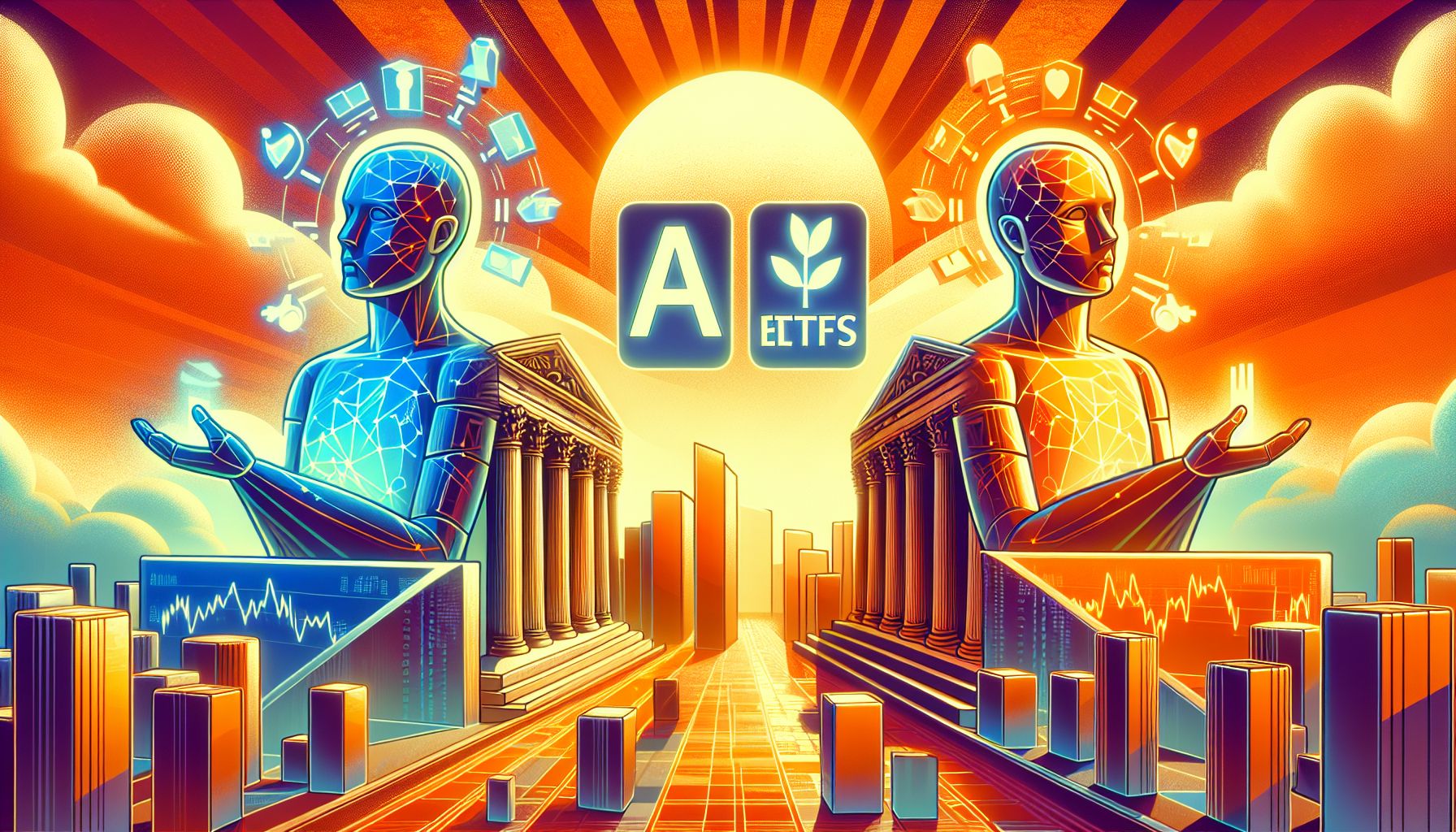AI-Driven ETFs: The New Frontier in Investment Strategy

Netherlands, Monday, 9 September 2024.
Two AI-managed ETFs are challenging traditional investment methods, sparking debate about the future of financial management. This development raises critical questions about the role of artificial intelligence in shaping investment strategies and its potential to outperform human-led approaches.
Understanding AI-Managed ETFs
AI-managed ETFs, or exchange-traded funds, utilize artificial intelligence to make investment decisions. These funds employ machine learning algorithms and vast datasets to analyze market trends, predict stock movements, and optimize portfolio allocations. The goal is to achieve higher returns by leveraging AI’s ability to process and interpret large volumes of data more quickly and accurately than human fund managers.
Notable AI-Managed ETFs
Several AI-managed ETFs have gained prominence recently. One example is the Global X Robotics & Artificial Intelligence ETF (BOTZ), which focuses on companies involved in robotics and automation technologies. Another is the Roundhill Generative AI & Technology ETF (CHAT), which targets firms developing generative AI technologies. These funds have garnered attention for their innovative approaches and potential for high returns[1].
The Benefits of AI-Driven Investment Strategies
AI-driven investment strategies offer several advantages. Firstly, they can process and analyze vast amounts of data at a speed and accuracy unattainable by humans. This enables more informed decision-making and quicker responses to market changes. Additionally, AI algorithms can identify patterns and correlations in data that may be overlooked by human analysts, potentially leading to more profitable investment opportunities.
Performance Comparison: AI vs. Traditional Methods
The performance of AI-managed ETFs compared to traditionally managed funds is a key area of interest. Recent data suggests that some AI-driven funds, like the Global X Robotics & AI ETF, have outperformed traditional benchmarks such as the S&P 500 since the AI boom began in late 2023 with the launch of ChatGPT[2]. However, it’s important to note that the success of AI-managed ETFs can vary significantly based on market conditions and the quality of the underlying algorithms.
Companies and Key Figures Leading the Innovation
Several companies and key figures are at the forefront of AI-managed ETF innovation. Global X ETFs, based in the United States, is a notable player with its AIQ and BOTZ ETFs. Tejas Dessai, assistant vice president and research analyst at Global X ETFs, emphasizes the importance of diversification in the early stages of the AI cycle[3]. Another prominent figure is Dave Mazza, CEO at Roundhill Investments, who champions the transformative potential of generative AI technologies[1].
The Future of Financial Management
The rise of AI-managed ETFs signifies a broader trend towards automation in financial management. As AI technologies continue to evolve, their integration into investment strategies is expected to become more sophisticated and widespread. This shift could lead to more efficient markets and potentially higher returns for investors. However, it also raises questions about the role of human fund managers and the ethical implications of AI-driven decision-making.

